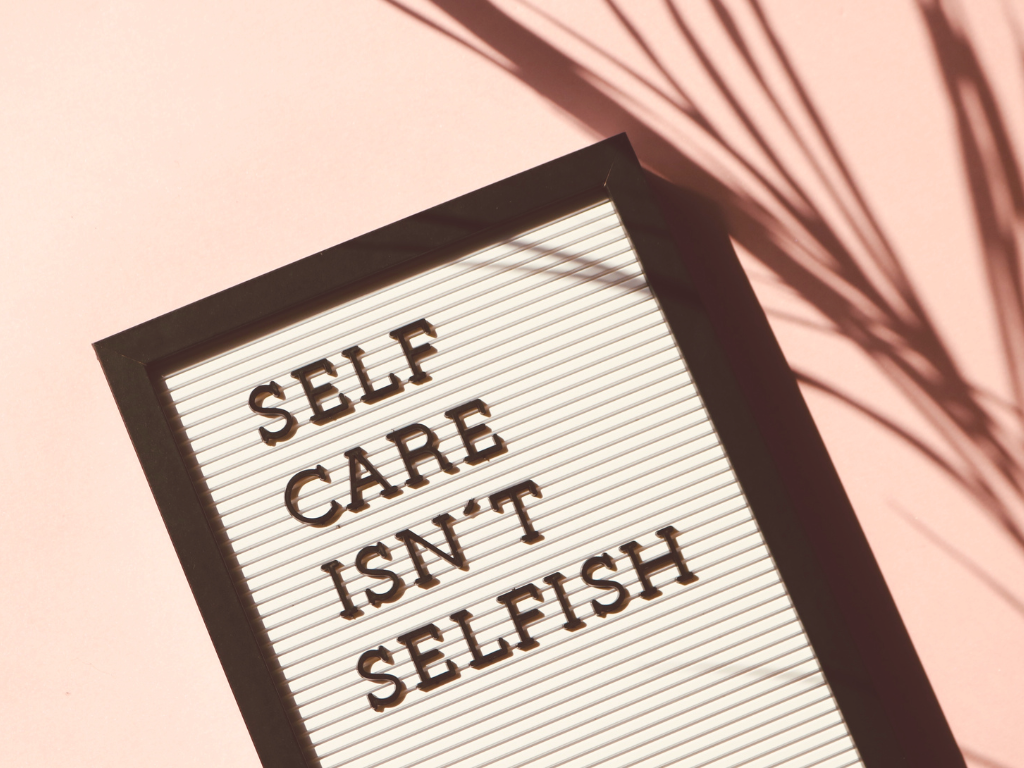
5 Ways To Start Self Care At Home
Share
Taking care of yourself is not a luxury but a necessity. It means looking after your physical, mental, and emotional well-being, especially during stress and uncertainty. Self-care can help you deal with challenges, improve your mood, and enhance your health. Here are five tips on how to boost your self-care at home:
1. Prioritize sleep as part of your self-care routine. Sleep can affect how you feel emotionally and physically, and lack of sleep can impair your cognitive function, mood, and immune system. To get enough quality sleep, follow a regular schedule, avoid caffeine and alcohol before bed, and create a comfortable and dark environment. You can also practice relaxation techniques, such as meditation, breathing exercises, or soothing music, to help you fall asleep faster and deeper.
2. Nourish yourself by nourishing your gut. Your gut health can significantly impact your health, mood, and energy levels. To support your gut health, eat a balanced and diverse diet that includes probiotics (such as yogurt, kefir, sauerkraut, or kimchi) and prebiotics (such as garlic, onion, oats, bananas, or apples). You can also avoid foods irritating your gut, such as processed foods, sugar, alcohol, or gluten.
3. Move your body daily as part of your self-care plan. Exercise is one of the best ways to improve physical and mental health. It can help you maintain a healthy weight, strengthen your muscles and bones, lower your blood pressure and cholesterol levels, and prevent chronic diseases.
You can choose any exercise that you enjoy and suits your fitness level,
such as walking, jogging, cycling, swimming, dancing, or yoga.
4. Cultivate gratitude as a form of self-care.
Gratitude is appreciating what you have and expressing it to yourself or others. Gratitude can help you cultivate a positive mindset, enhance relationships, and increase happiness. Studies have shown that gratitude can lower stress levels, improve sleep quality, and boost your immune system. To cultivate gratitude daily, you can write down three things you are grateful for in a journal, thank someone who helped you, or send a message of appreciation to a friend or family member.
5. Do something that makes you happy every day.
Self-care is about taking care of your basic needs and enjoying activities that bring you joy and fulfillment. Doing something that makes you happy every day can help you relax, recharge, and reconnect with yourself.
It can also increase your self-esteem, creativity, and productivity.
You can choose any hobby or passion you love, such as reading,
writing, painting, gardening, cooking, or playing an instrument.
Self-care is not selfish but essential. Taking care of yourself at home can improve your quality of life and well-being. Remember that self-care is not a one-time thing but a habit you must practice regularly. So start today and make self-care a priority in your life.
1. Prioritize sleep as part of your self-care routine. Sleep can affect how you feel emotionally and physically, and lack of sleep can impair your cognitive function, mood, and immune system. To get enough quality sleep, follow a regular schedule, avoid caffeine and alcohol before bed, and create a comfortable and dark environment. You can also practice relaxation techniques, such as meditation, breathing exercises, or soothing music, to help you fall asleep faster and deeper.
2. Nourish yourself by nourishing your gut. Your gut health can significantly impact your health, mood, and energy levels. To support your gut health, eat a balanced and diverse diet that includes probiotics (such as yogurt, kefir, sauerkraut, or kimchi) and prebiotics (such as garlic, onion, oats, bananas, or apples). You can also avoid foods irritating your gut, such as processed foods, sugar, alcohol, or gluten.
3. Move your body daily as part of your self-care plan. Exercise is one of the best ways to improve physical and mental health. It can help you maintain a healthy weight, strengthen your muscles and bones, lower your blood pressure and cholesterol levels, and prevent chronic diseases.
You can choose any exercise that you enjoy and suits your fitness level,
such as walking, jogging, cycling, swimming, dancing, or yoga.
4. Cultivate gratitude as a form of self-care.
Gratitude is appreciating what you have and expressing it to yourself or others. Gratitude can help you cultivate a positive mindset, enhance relationships, and increase happiness. Studies have shown that gratitude can lower stress levels, improve sleep quality, and boost your immune system. To cultivate gratitude daily, you can write down three things you are grateful for in a journal, thank someone who helped you, or send a message of appreciation to a friend or family member.
5. Do something that makes you happy every day.
Self-care is about taking care of your basic needs and enjoying activities that bring you joy and fulfillment. Doing something that makes you happy every day can help you relax, recharge, and reconnect with yourself.
It can also increase your self-esteem, creativity, and productivity.
You can choose any hobby or passion you love, such as reading,
writing, painting, gardening, cooking, or playing an instrument.
Self-care is not selfish but essential. Taking care of yourself at home can improve your quality of life and well-being. Remember that self-care is not a one-time thing but a habit you must practice regularly. So start today and make self-care a priority in your life.
